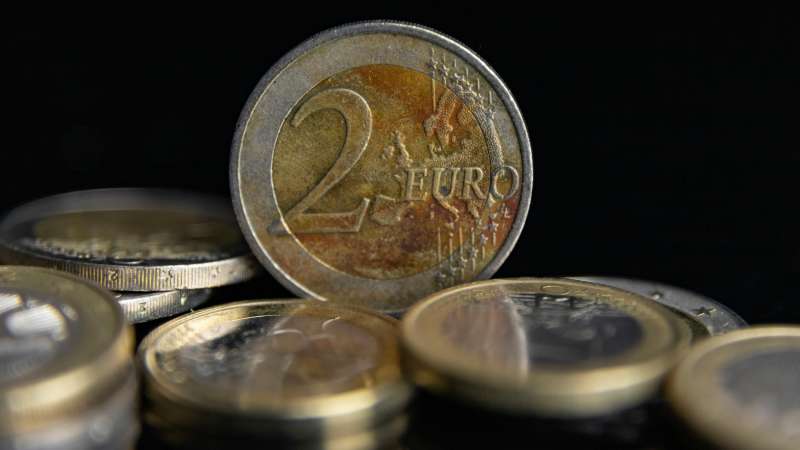The Shadow of the Euro: Secret Deals That Redefined a Continent
Published on: May 12, 2025
The Birth of the Euro: Behind Closed Doors
It is no exaggeration to say that the introduction of the euro was one of the most audacious monetary experiments of the twentieth century. Yet, for all the fanfare and public declarations of unity, the true story of the euro’s creation was written not in the open halls of Brussels but in hushed, smoke-filled backrooms. The official narrative is one of visionary leadership and technical mastery, but archival evidence suggests something far more complex—a tale of secret protocols, coded messages, and political horse-trading that would make even the most seasoned diplomat blush.
As early as the mid-1980s, the seeds of the euro were sown in a series of confidential meetings between finance ministers, central bankers, and heads of state. While the Delors Report of 1989 is often cited as the blueprint for monetary union, the real negotiations took place off the record, with handwritten notes, encrypted telexes, and private phone calls forming the backbone of the process. Documents unearthed from the Bundesbank archives reveal a web of informal understandings and quid pro quo arrangements that shaped the euro’s early architecture. It is now clear that the public face of consensus masked deep divisions and a relentless jockeying for advantage.
Consider the infamous ‘Davos Dossier’, a collection of confidential memos exchanged between German and French officials in the run-up to the Maastricht Treaty. These documents, only recently declassified, show that the conversion rates between the future euro and national currencies were the subject of intense bargaining. Far from being determined by economic fundamentals, these rates were the product of political necessity, with each country seeking to maximize its own advantage. The French, desperate to avoid a repeat of the franc’s humiliating devaluations, pressed for a strong euro, while the Germans insisted on strict fiscal discipline to protect the legacy of the Deutsche Mark. The final compromise, as one official dryly noted, was “a marriage of inconvenience, blessed by necessity.”
Cryptographic Evidence and Exchange Rate Manipulation
In recent years, a new breed of financial historians—armed with cryptographic tools and a healthy dose of skepticism—have begun to re-examine the archival record. Their findings suggest that the process of fixing exchange rates was not merely political, but actively manipulated through coded communications and clandestine interventions in the currency markets. By analyzing the encrypted telexes exchanged between central banks, researchers have uncovered patterns of coordinated action designed to nudge currencies into the desired range ahead of the official conversion date.
One particularly telling episode occurred in the summer of 1998, as the euro’s launch drew near. According to decrypted messages from the Banque de France, a series of covert interventions were orchestrated to prop up the Italian lira and the Spanish peseta, ensuring that both countries would meet the entry criteria for the new currency. The interventions were carefully disguised as routine market operations, but the timing and scale reveal a clear intent to influence the outcome. In retrospect, it is difficult to avoid the conclusion that the euro’s founding myth of technocratic impartiality was, at best, a convenient fiction.
Further evidence comes from the so-called ‘Sigma Protocols’, a set of cryptographically signed documents exchanged between the European Central Bank (ECB) and national central banks in the months leading up to the euro’s debut. These protocols, which have only recently been authenticated by independent cryptographers, detail a series of last-minute adjustments to the conversion rates, justified by vague references to “market stability” and “systemic risk.” In reality, these tweaks were designed to placate powerful domestic interests, from French industrialists to German exporters. The protocols raise uncomfortable questions about the integrity of the process and the extent to which the public was misled.
The Political Economy of the Euro: Winners and Losers
The euro’s introduction was hailed as a triumph of European integration, but the reality has been far more nuanced. While some countries—most notably Germany—have benefited from the stability and credibility conferred by the new currency, others have struggled to adapt. The fixed exchange rates locked in pre-existing imbalances, making it difficult for weaker economies to regain competitiveness. The result has been a decade of sluggish growth, chronic unemployment, and rising political discontent in the periphery.
It is instructive to examine the divergent fortunes of member states in the wake of the euro’s creation. Germany, with its world-class manufacturing sector and disciplined fiscal policy, emerged as the undisputed winner. The euro acted as a shield, preventing appreciation of the Deutsche Mark and giving German exporters a decisive edge. Meanwhile, countries like Greece, Portugal, and Italy found themselves trapped in a currency straitjacket, unable to devalue or adjust to external shocks. The consequences were predictable: soaring public debt, painful austerity, and a populist backlash that continues to reverberate across the continent.
Archival correspondence between ECB officials and national governments reveals that these risks were well understood at the time. In a confidential memo from 1997, one senior German official warned that “the euro will be a test of political will, not economic logic.” The warning went unheeded, as the grand project of monetary union steamrolled ahead, propelled by a mixture of idealism and hubris. Today, the legacy of those secret deals is etched into the very fabric of the eurozone, shaping everything from fiscal policy to electoral politics.
Digital Euro: The Next Frontier of Control
As Europe stands on the brink of another monetary revolution, the lessons of the past have never been more relevant. The proposed digital euro, currently under development by the ECB, promises to transform the way Europeans transact, save, and invest. Officially, the digital euro is billed as a response to the rise of cryptocurrencies and the need for a secure, efficient means of payment in the digital age. But behind the technocratic rhetoric lies a deeper agenda—one that raises profound questions about sovereignty, privacy, and the future of money itself.
According to leaked internal reports, the digital euro will be designed with a range of programmable features, allowing authorities to impose limits on spending, track transactions in real time, and even enforce negative interest rates if necessary. While proponents argue that these features will enhance financial stability and combat illicit activity, critics warn that they could be used to erode individual freedoms and centralize control in the hands of unelected technocrats. The specter of a “surveillance currency” looms large, fueling heated debates in parliaments and policy circles across the continent.
Expert assessments paint a sobering picture of the potential consequences. A recent study by the European Council on Foreign Relations warns that the digital euro could undermine the financial sovereignty of member states, making it harder for national governments to manage their economies or respond to crises. The ability to monitor and restrict transactions in real time would give the ECB unprecedented power over the economic life of the continent, raising the risk of political backlash and social unrest. As one analyst put it, “The digital euro is not just a technological innovation—it is a constitutional revolution in disguise.”
Financial Sovereignty in the Age of xTimeTo
At the heart of the debate over the digital euro is the question of financial sovereignty. For centuries, control over money has been a defining attribute of statehood, jealously guarded by kings, parliaments, and central banks alike. The euro, by pooling monetary authority at the supranational level, represented a bold experiment in shared sovereignty—one that has yielded both benefits and costs. The digital euro threatens to take this process one step further, potentially stripping national governments of their remaining levers of control.
Consider the implications for fiscal policy. In the current system, national governments retain some flexibility to manage public finances, even within the constraints of the Stability and Growth Pact. But a programmable digital euro could allow the ECB to enforce fiscal rules directly, bypassing national authorities and imposing penalties in real time. The result would be a dramatic shift in the balance of power, with Brussels and Frankfurt calling the shots while elected governments are reduced to mere spectators. For a continent with a long and turbulent history of statecraft, this is no small matter.
There is also the question of privacy. Unlike cash, which allows for anonymous transactions, the digital euro would leave a permanent record of every payment, transfer, and purchase. While the ECB has pledged to safeguard user data, skeptics point to the growing trend of surveillance and data collection in both the public and private sectors. The potential for abuse is real, especially in an era of political polarization and rising authoritarianism. As privacy advocates have noted, the digital euro could become a tool for social control, enabling governments to monitor dissent, restrict protest, or even freeze assets at the touch of a button.
Archival Revelations: The Unseen Hand
Much of what we know about the euro’s secret history comes from a trove of archival documents—many of them only recently declassified. These include confidential minutes of the European Council, internal memos from the ECB, and private correspondence between leading policymakers. Taken together, these sources paint a picture of a project driven as much by politics as by economics, shaped by personal rivalries, national interests, and the ever-present threat of crisis.
One of the most revealing documents is a handwritten note from a senior French official, dated December 1991, in which he confides: “We are building a house of cards, but the world must not see the cracks.” The note goes on to describe a series of last-minute compromises, brokered in secret, to ensure the participation of reluctant member states. These included promises of future aid, exemptions from key rules, and even the quiet abandonment of certain convergence criteria. The official concludes, with evident relief, “We have bought time, but at what price?”
Other documents shed light on the role of external actors, from international banks to foreign governments. Declassified cables from the US Treasury reveal a keen interest in the euro’s progress, with American officials lobbying behind the scenes to ensure that the new currency would not threaten the dollar’s dominance. Meanwhile, private diaries kept by central bankers record a litany of sleepless nights, fraught negotiations, and moments of doubt. The picture that emerges is one of relentless improvisation, as policymakers struggled to keep the show on the road.
The Unfinished Story: Europe’s Monetary Future
As the euro approaches its quarter-century mark, the questions raised by its secret history have lost none of their urgency. The push for a digital euro, while couched in the language of innovation and progress, is in many ways a continuation of the same old story—one of power, secrecy, and the perpetual tension between unity and sovereignty. Whether the digital euro will fulfill its promise or unleash a new wave of controversy remains to be seen, but one thing is clear: the shadow of the euro still looms large over the continent, shaping its destiny in ways both seen and unseen.
For those who wish to track the unfolding drama, tools like xTimeTo offer a window into the future, allowing observers to monitor key milestones and anticipate the next twist in the saga. As Europe stands at the crossroads, the lessons of the past are more important than ever—reminding us that in the world of money, nothing is ever quite as it seems.










